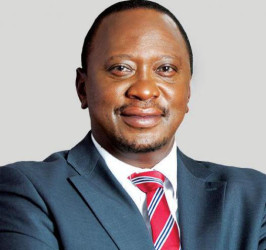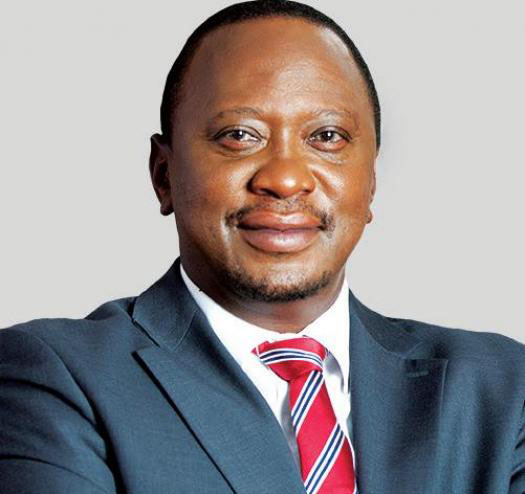NAIROBI (Reuters) – Kenyan President Uhuru Kenyatta said on Saturday the country had a problem with its judiciary, which annulled his election win of last month, “and we must fix it”.
The Law Society of Kenya said in a strongly worded statement that Kenyatta, as “the head of state who under the constitution is a symbol of national unity”, should refrain from derogatory comments about the judiciary.
Kenyatta, speaking a day after the Supreme Court cancelled his victory and ordered new polls within 60 days, repeated his message from Friday that he would respect its ruling. But, speaking on live television at the State House in Nairobi after meeting elected officials from his Jubilee party, he added:

“Who even elected you?…We have a problem and we must fix it.” He did not elaborate.
The decision to annul the election was unexpected and unprecedented in Africa where governments often hold sway over judges.
The president’s latest comments mark the second time since Friday’s ruling that he has criticised the judiciary in public. On Friday, during an impromptu rally in Nairobi, he accused the court of ignoring the will of the people and dismissed the chief justice’s colleagues as “wakora”, or crooks.
The lawyers’ association condemned Kenyatta’s use of the Kiswahili word, saying that the judges serving in the highest court had acted “professionally, with honour and dignity”.
“They…do not deserve the disrespectful treatment they are being shown”, the statement read.
The president’s appearances since the ruling suggest he intends to campaign rigorously for the re-run of the Aug.8 poll.
He said via Twitter on Saturday: “For now let us meet at the ballot.”
Attention now turns back to the election board. The court ruled that it had “failed, neglected or refused to conduct the presidential election in a manner consistent with the dictates of the constitution”.
Raila Odinga, the veteran opposition leader whose coalition brought the petition against the election board to the Supreme Court, said on Friday that some officials from the commission should face criminal prosecution.
The chairman of the election board said there would be personnel changes, but it was not clear if that would be enough for the opposition. Sweeping out the whole board would complicate efforts to hold a new poll within two months.
Last month’s election — which included the presidential poll in addition to races at other levels of government — was one of the most expensive ever held in Africa. Ahead of the vote Kenya’s treasury said preparation and conduct of polling would cost the equivalent of around $480 million.
Analysts saw the president’s latest comments on the judiciary as a worrisome development.
“It’s extremely unfortunate that Kenyatta seems to be issuing veiled threats at the judiciary,” said Murithi Mutiga, a Nairobi-based senior Africa analyst at the International Crisis Group.
“This was a tremendous moment for Kenyan democracy, where the court upheld the rule of law. Politicians should be careful not to incite the public against the judiciary.”
On Friday, Chief Justice David Maraga said the Supreme Court’s verdict was backed by four of the six judges and declared Kenyatta’s victory “invalid, null and void”.
Details of the ruling will be released within 21 days.
Prior to last month’s election Maraga spoke out to emphasise the judiciary’s independence.
In a statement he read out on behalf of the Judicial Service Commission less than a week before the election, he listed instances in which politicians — from the ruling party and the opposition — had tried to intervene in the judiciary’s work.
“The emerging culture of public lynching of judges and judicial officers by the political class is a vile affront to the rule of law and must be fiercely resisted,” the statement read. “We wish to state that … the judiciary will not cower to these intimidating tactics.”
Kenya’s judiciary went through sweeping changes in a bid to restore confidence in the legal system after the bloodshed following the 2007 election.
Experts say the constitution adopted in 2010 enshrines protections for the judiciary against interference by the executive.

